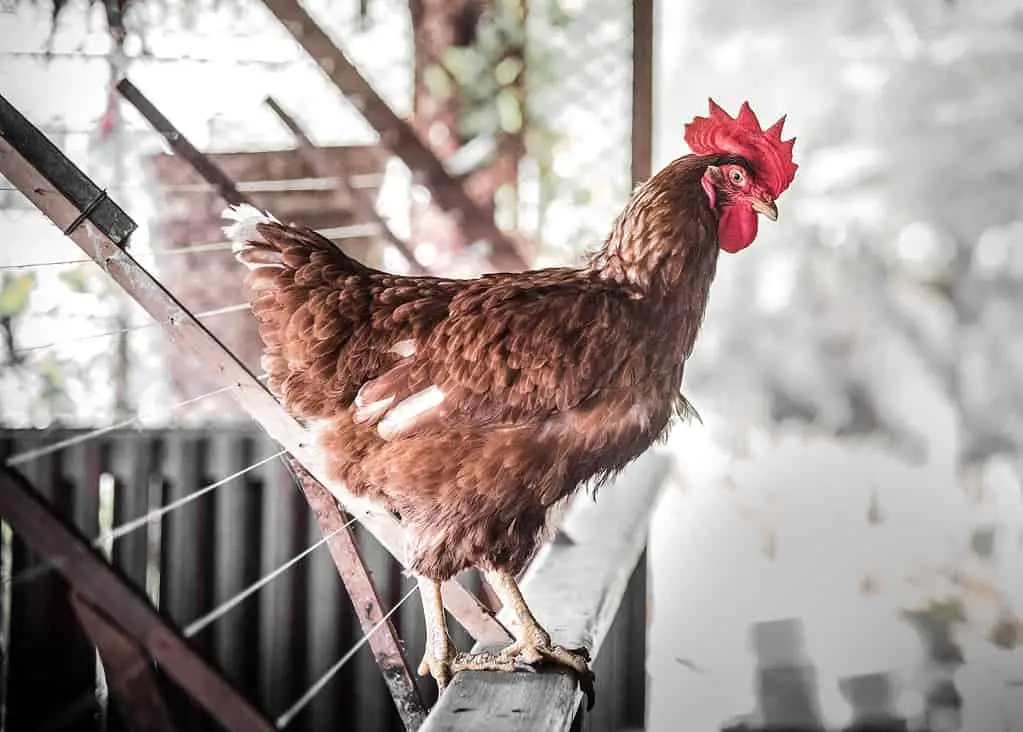Understanding the Importance of Quality Poultry Feed: Standards for a Balanced Chicken Diet
Nutritional Requirements: Meeting the specific nutritional needs of chickens for optimal growth and development.
Quality Poultry Feed. Meeting the specific nutritional needs of chickens is crucial for their optimal growth and development in poultry farming. Whether it is raising broiler chickens for meat production or managing layer chickens for egg production, providing a balanced diet is essential for the overall health and productivity of the flock.
Poultry nutrition revolves around selecting the right feed components that fulfill the dietary requirements of the birds. A proper mix of proteins, carbohydrates, fats, vitamins, and minerals is necessary to meet the specific needs of different chicken breeds and support their growth and development. Additionally, the quantity and quality of feed offered to the birds play a significant role in determining their overall health and productivity.
To ensure a well-balanced diet, poultry farmers must continuously monitor and adjust their feed formulations based on factors such as age, weight, and production stage of the chickens. Accomplishing this requires a deep understanding of the nutritional requirements of the birds and the ability to analyze feed components and their interactions. Proper nutrition management in poultry farming not only contributes to the well-being of the birds but also enhances the profitability and sustainability of the overall business.
Essential Ingredients: Identifying the necessary components in poultry feed to ensure a balanced diet

When it comes to ensuring the health and wellbeing of chickens in the poultry farming industry, providing a balanced diet is crucial. This requires identifying the necessary components in poultry feed that will meet their nutritional needs. Poultry feed should contain a combination of proteins, carbohydrates, fats, vitamins, and minerals to support optimal growth and development.
Protein is a key component in poultry feed, as it is essential for muscle development and overall chicken health. Protein sources commonly used in poultry feed include soybean meal, meat and bone meal, fish meal, and dried whey. These protein sources provide the necessary amino acids that chickens need for their growth and maintenance.
In addition to protein, carbohydrates and fats are also important components in poultry feed. Carbohydrates provide energy to support the chicken’s daily activities, while fats serve as a concentrated source of energy and help in the absorption of fat-soluble vitamins. Common carbohydrate sources in poultry feed include grains like corn, wheat, and sorghum, while fats can be derived from vegetable oils or animal fats.
Overall, identifying and including the necessary ingredients in poultry feed is essential for ensuring a balanced diet for chickens. These ingredients should provide adequate protein, carbohydrates, fats, vitamins, and minerals to support their growth, development, and overall health.
Protein Content: Understanding the significance of adequate protein levels in supporting chicken health and productivity.

Protein is a crucial nutrient for chickens as it plays a vital role in supporting their overall health and productivity. Whether in broiler chicken farming or layer chicken farming, adequate protein levels are necessary for optimal growth and development. Protein is essential for muscle growth, feather formation, and egg production in chickens.
Protein content in poultry feed is particularly important during the early stages of chicken growth. This is because young chicks require high amounts of protein for proper development. As they grow older, the protein requirements may decrease, but it is still vital to ensure that the feed provided contains sufficient protein to support their ongoing needs.
Low protein levels in chicken diets can lead to stunted growth, reduced egg production, and weakened immune systems, making the birds more susceptible to diseases. On the other hand, an excess of protein in their diet can also be harmful and lead to health issues.
Therefore, it is essential for poultry farmers to carefully balance and monitor the protein content in their feed formulations to meet the specific nutritional requirements of their chickens. A well-balanced diet with appropriate protein levels is key to ensuring the overall health and productivity of chickens in the poultry industry.
- Protein is crucial for muscle growth, feather formation, and egg production in chickens.
- Adequate protein levels are necessary for optimal growth and development in broiler chicken farming and layer chicken farming.
- Young chicks require high amounts of protein for proper development during the early stages of growth.
- As chickens grow older, their protein requirements may decrease but it is still important to provide sufficient protein in their feed.
- Low protein levels can result in stunted growth, reduced egg production, and weakened immune systems in chickens.
- Excess protein in their diet can also be harmful and lead to health issues.
- Poultry farmers must carefully balance and monitor the protein content in their feed formulations to meet the nutritional needs of their chickens.
- A well-balanced diet with appropriate protein levels is essential for ensuring the overall health and productivity of chickens.
Energy Sources: Exploring the different energy sources in poultry feed and their role in maintaining chicken vitality.
Exploring the different energy sources in poultry feed is crucial for maintaining the vitality of chickens in poultry farming. Energy plays a vital role in supporting the various physiological functions of chickens, including growth, reproduction, and overall health. Therefore, it is essential to provide chickens with a balanced diet that includes adequate energy sources to meet their specific needs.
There are different energy sources commonly used in poultry feed, including carbohydrates, fats, and proteins. Carbohydrates, such as grains and cereals, are the primary energy source in poultry diets. They provide a readily available source of energy for chickens and are easily digestible.
Fats, derived from vegetable or animal sources, are also used to supplement the energy content of poultry feed. They contain higher energy levels compared to carbohydrates and are important for providing additional calories to chickens, especially during periods of increased energy demand, such as growth or cold weather.
Proteins, mainly sourced from plant and animal by-products, also contribute to the energy content of poultry feed. In addition to energy, proteins are essential for muscle development, feather formation, and overall body maintenance in chickens.
By understanding the different energy sources in poultry feed and their role in maintaining chicken vitality, poultry farmers can ensure that their flocks receive the necessary energy to thrive. Providing a balanced diet that includes a variety of energy sources will contribute to optimal growth, development, and productivity in broiler and layer chickens.
Vitamin and Mineral Supplements: Discussing the importance of including essential vitamins and minerals in chicken diets.
Including essential vitamins and minerals in chicken diets is crucial for maintaining the overall health and well-being of poultry. Just like humans, chickens require a variety of vitamins and minerals to support their bodily functions and metabolic processes. These nutrients play a vital role in maintaining optimal growth, immune function, bone development, and reproductive health in both broiler and layer chickens.
Vitamins, such as vitamin A, vitamin D, vitamin E, and the B vitamins, are essential for chickens’ growth, vision, immune system function, and energy metabolism. Minerals, on the other hand, are necessary for the development of strong bones, proper muscle function, and the maintenance of electrolyte balance. Important minerals for poultry include calcium, phosphorus, magnesium, potassium, and trace minerals like iron, zinc, and copper.
Without an adequate supply of these essential vitamins and minerals, chickens may experience growth retardation, weakened immune systems, poor egg production, and increased susceptibility to diseases. Therefore, poultry farmers must ensure that their chickens’ diets are properly balanced and supplemented with the required vitamins and minerals to promote optimal health and productivity in their flocks.
Feed Formulation: Explaining the process of formulating poultry feed to meet specific dietary requirements.
Feed formulation is a critical process in poultry farming, as it involves creating a balanced diet that meets the specific dietary needs of chickens. The goal of feed formulation is to provide chickens with the right nutrients, in the right amounts, to support their growth, health, and productivity.
To begin the feed formulation process, farmers must first assess the nutritional requirements of their flock. This includes considering factors such as the age, breed, and production purpose of the chickens, whether they are broilers or layers. It is crucial to take into account the specific nutrient needs of each chicken category. Once these requirements are determined, farmers can then select the appropriate ingredients to include in the poultry feed.
The selection of ingredients is based on their nutritional content and availability in the market. Common ingredients used in poultry feed include grains, such as corn and wheat, as well as protein sources like soybean meal and fish meal.
Other ingredients, such as vitamins, minerals, and additives, may also be added to ensure a well-rounded diet for the chickens. Farmers must carefully calculate the quantities and ratios of these ingredients to achieve the desired nutritional composition in the feed. Additionally, they should take into consideration factors such as cost, availability, and sustainability when formulating the feed.
In conclusion, feed formulation is a crucial aspect of poultry farming that requires careful consideration of the specific nutritional requirements of chickens.
By selecting the right ingredients and balancing their quantities, farmers can ensure that their flock receives a well-rounded diet to support their growth, health, and productivity. It is essential for farmers to stay updated with the latest research and advancements in poultry nutrition to constantly refine their feed formulation strategies.
Why is it important to meet the specific nutritional needs of chickens?
Meeting the specific nutritional needs of chickens is crucial for their optimal growth and development. It ensures that they receive all the necessary nutrients to maintain good health, productivity, and overall well-being.
What are the essential ingredients in poultry feed?
The essential ingredients in poultry feed include grains (such as corn and wheat), protein sources (such as soybean meal and fishmeal), fats and oils, vitamins, minerals, and additives (such as enzymes and probiotics). These components are necessary to ensure a balanced diet for chickens.
Why is adequate protein content important in poultry feed?
Adequate protein content in poultry feed is vital for supporting chicken health and productivity. Protein is necessary for muscle development, egg production, feather quality, and overall growth. It also plays a key role in important biological functions such as enzyme production and immune system functioning.
What are the different energy sources in poultry feed?
The different energy sources in poultry feed include carbohydrates (in the form of grains), fats, and oils. These energy sources provide the necessary fuel for chickens’ daily activities, growth, and maintenance. They are essential for maintaining chicken vitality and overall metabolic functions.
Why are vitamin and mineral supplements important in chicken diets?
Vitamin and mineral supplements are important in chicken diets to ensure that chickens receive all the necessary micronutrients for their body functions. These nutrients are essential for bone health, immune system functioning, enzyme reactions, and overall metabolic processes. They also help prevent nutrient deficiencies and related health issues.
How is poultry feed formulated to meet specific dietary requirements?
Poultry feed formulation involves carefully calculating the amounts of different ingredients based on the specific nutritional requirements of the chickens. This process considers factors such as the bird’s age, breed, intended purpose (e.g., meat production or egg-laying), and any special dietary needs. By formulating the feed accordingly, it ensures that the chickens receive a balanced diet that meets their specific dietary requirements.








